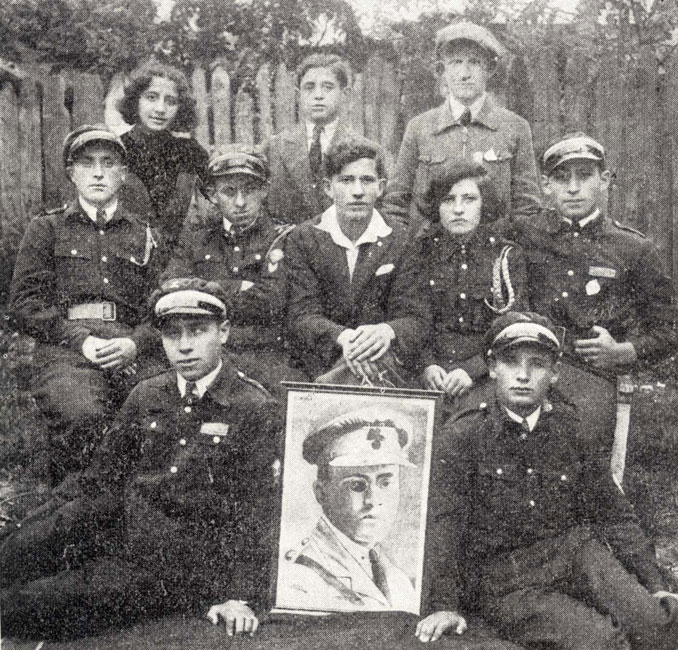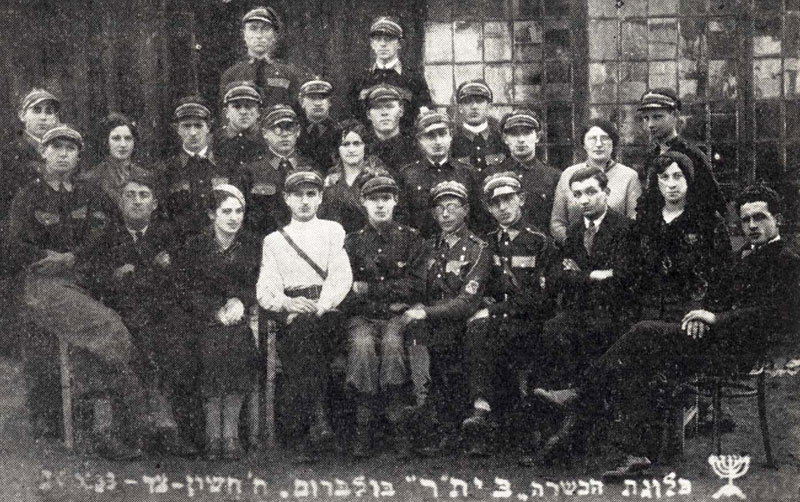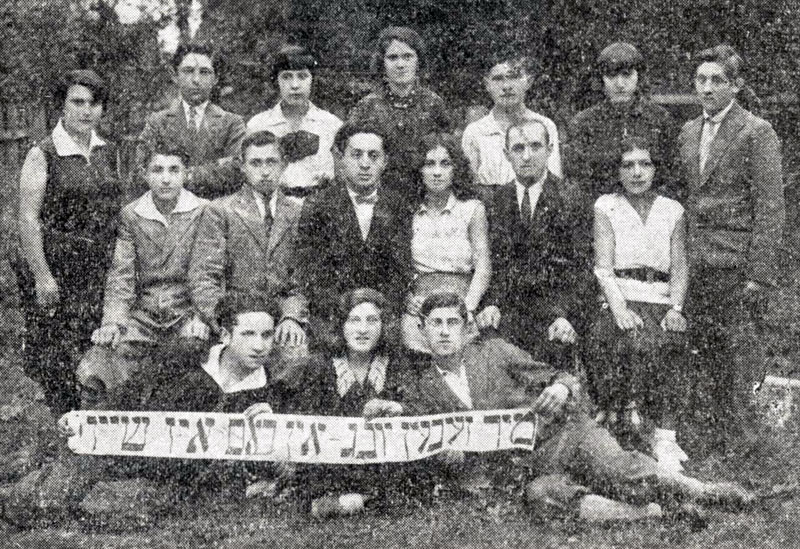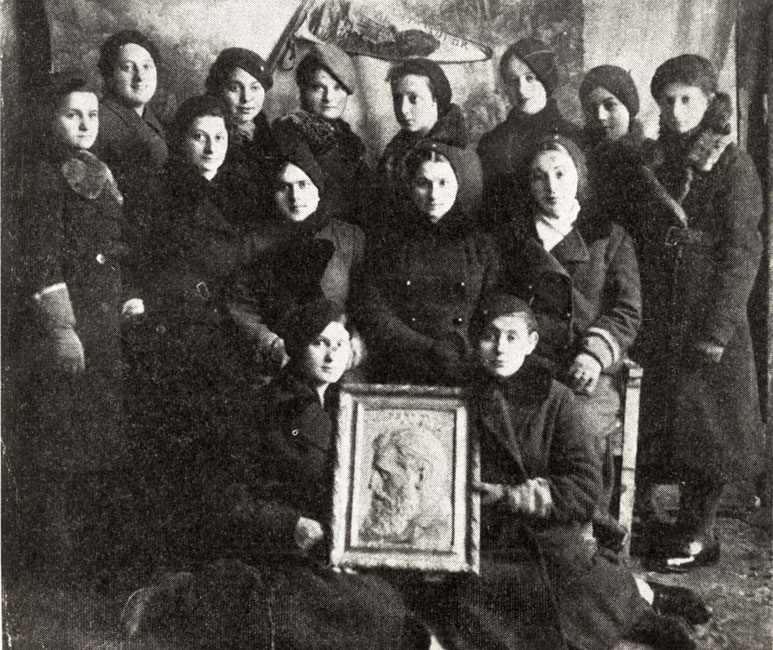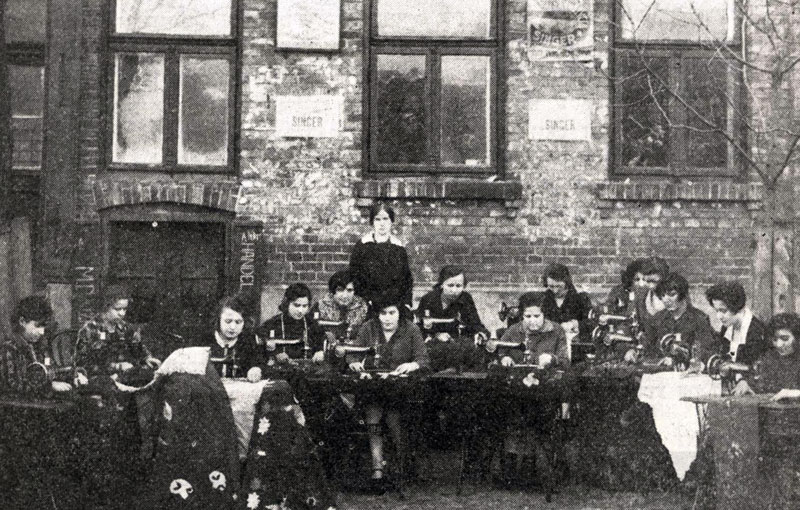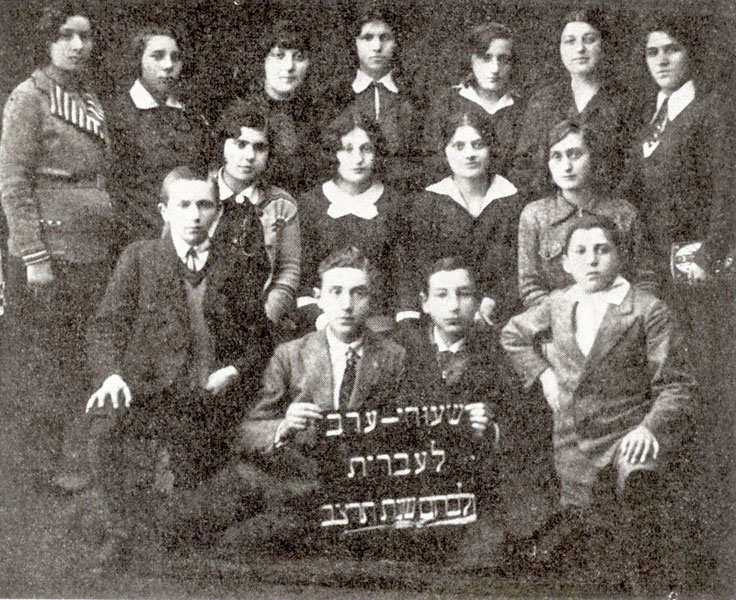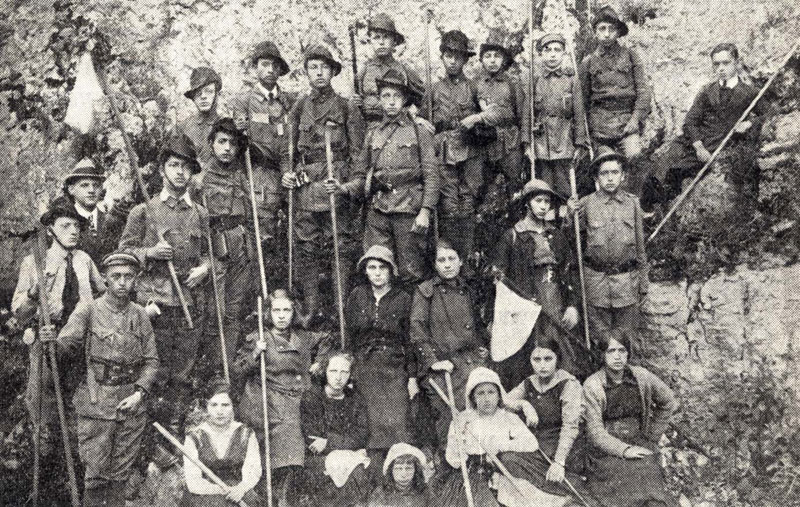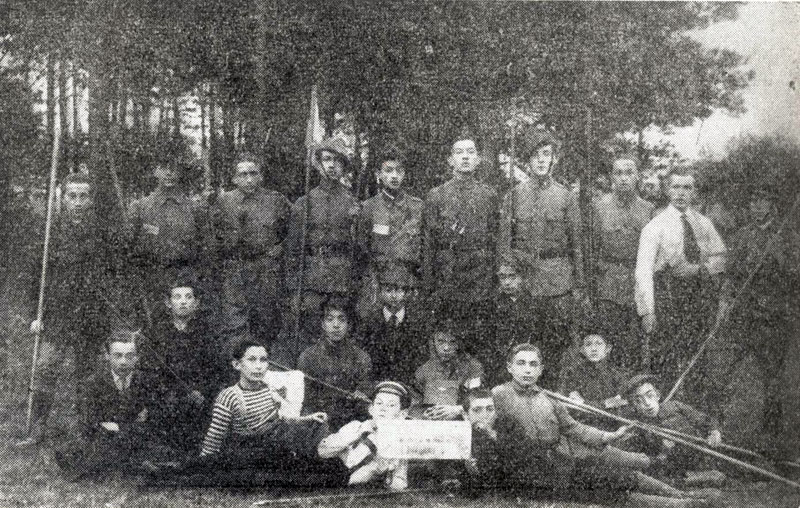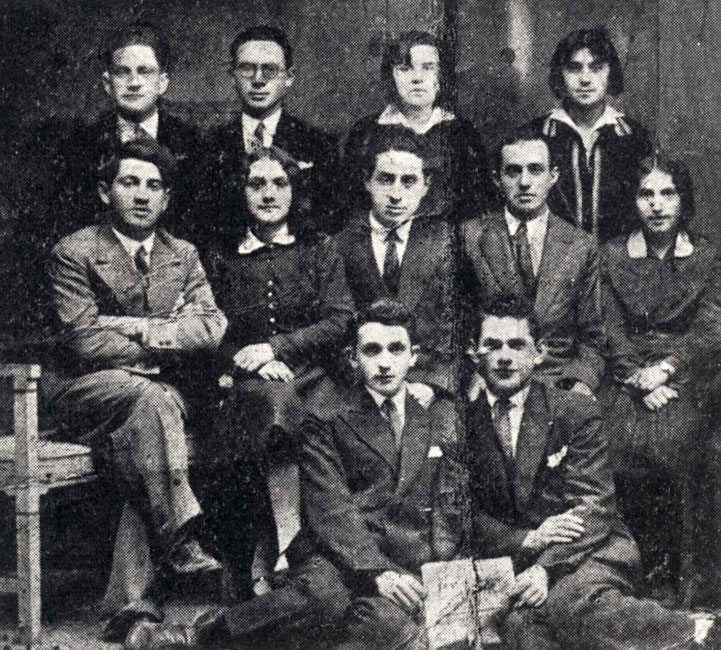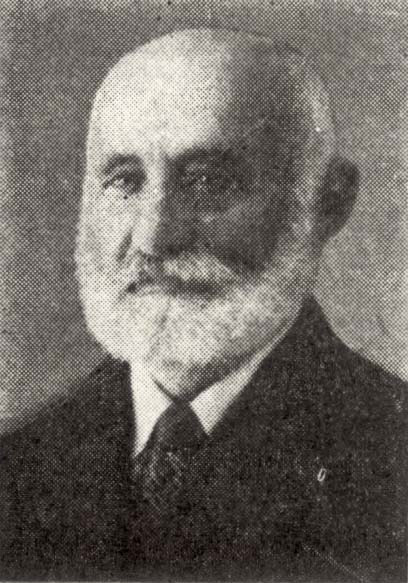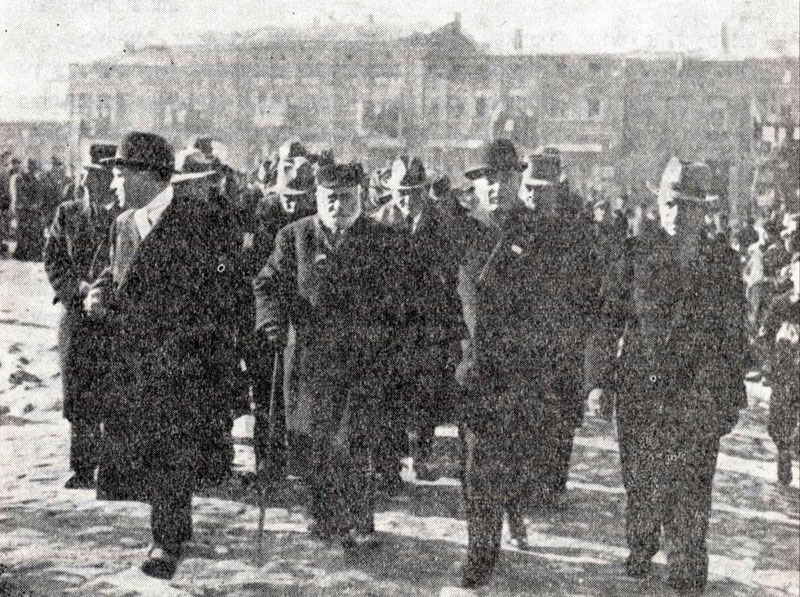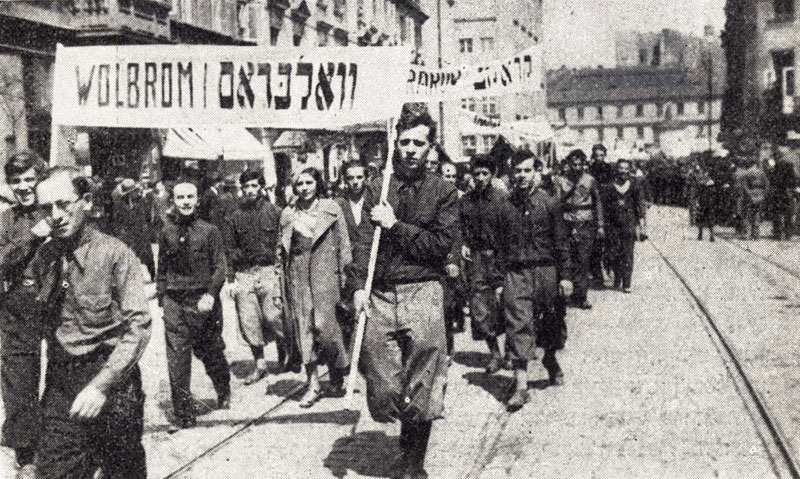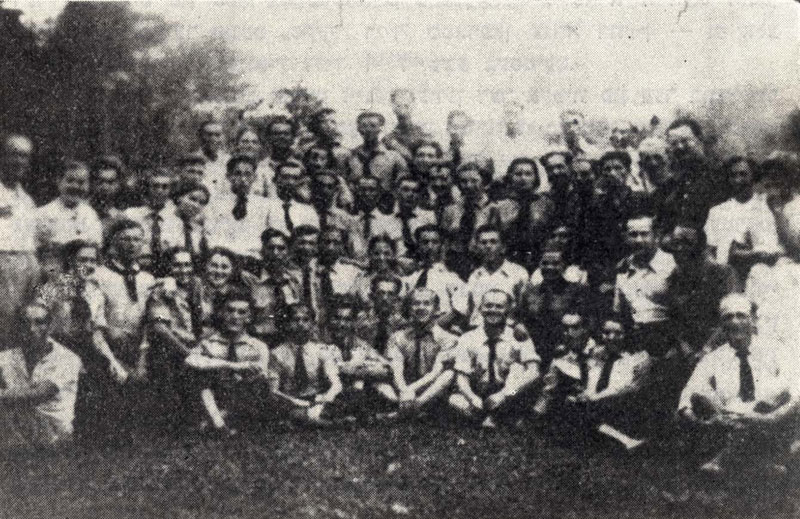Wolbrom Before the Holocaust
Zionism and Politics
Zionism
“Following the Russians retreat from Wolbrom and the Austrian occupation [in World War I], new winds began to blow in Wolbrom. Progressive opinions began to develop gradually, calling for the renewal of Jewish thought, for a reevaluation of Jewish cultural assets, for the elimination of ignorance and religious backwardness and for enlightenment of Jewish personal and public life. Wolbrom was not unique in this respect. The youngsters began to secretly read newspapers and to educate themselves by reading books that had begun to appear in Hebrew and Yiddish. As soon as these new ideas began to blossom in Wolbrom, the Orthodox became alarmed: ‘have the bad tidings reached us too?' ...With influence from the outside, the number of followers of renewal grew by the hundreds...They read contemporary literature and books; they would meet for joint reading sessions; they decided to learn Hebrew and disseminate the language among other youngsters; and they established a library in town. Many drew their Zionist ideals from the library. And from there, the ideas went out and spread on, conquering the hearts of the youngsters. Young Hasidim and others who were experiencing an identity crisis joined Zionism and its literature, and the reins were released. It became clear that even though Jewish Wolbrom had stagnated for many generations, the ideas of national renewal had hauled the community out of its old traditions, and that it had reinvigorated and elevated it. Thus contemporary forces took over. The preachers of Zion calling for people to settle in the Land of Israel imbued the hearts of the youngsters with ideas of renewal, their words finding a fertile ground. The Hebrew spirit was victorious. Nevertheless the importance of Hasidism did not diminish and no one undermined them, but they were no longer a factor that stood in the way of the general progress.”
Sh. Barkai in Wolbrom Irenu (Our Town Wolbrom)
Zionism - “New Winds”
The elections to the City Council of 20 June 1932
“…The Jewish community became very ambitious and a miracle happened. The Aguda (Orthodox), the Zionists and the Artisans reached an agreement and presented a united list. But the Pińczów Hasidim as well as the Alexander Hasidim, headed by Rabbi Tarla, were dissatisfied. Because of the division into three parties, the Jewish voters lost one seat in the council.
Now what about the Jewish workers of Wolbrom? No peace was to be found there either, and nothing could bring the hearts closer in the spirit of the slogan calling on the workers of the world to unite. Due to the division, no united front was created and the workers lost two seats.
The second city council therefore had a Polish majority of 14 against 10 Jewish seats, bearing no proportion to the population. The election results were: The Bund received 139 votes and no seat, the Poalei Zion Left – 197 votes and one seat, Poale Zion Right – 103 votes and no seat, the Alexander Hasidim – 476 votes and three seats, the Pińczów Hasidim – 92 votes and no seat, and the United Block – 893 votes and six seats. It is important to mention that the turnout was 96% of the Jewish voters.”
Sh. Barkai in Wolbrom Irenu (Our Town Wolbrom)
The Community Council
Between the two world wars, i.e. in the independent Polish state, the community council in Wolbrom was elected in democratic elections. The elections were general (making no distinction between those who paid taxes and those who were exempted), and with secret ballots. Only women had no voting right, because the community was defined as a religious entity. The elections took place once every four years. In addition to the elected representatives, the rabbi was automatically a member of the council. The Aguda usually won a large majority because the voters considered the council to be a religious, and therefore they wanted religious people to lead it. Therefore the chairman or his deputy were almost always of the Aguda list.
The council had autonomy to deal with religious Jewish affairs, and would represent the Jews in dealing with the local authorities. The council would nominate rabbis, cantors, run the cemetery and other religious institutions, such as the synagogue and the religious schools. It would also levy taxes in order to maintain the Jewish organizations.
Sh. Barkai in Wolbrom Irenu (Our Town Wolbrom)
